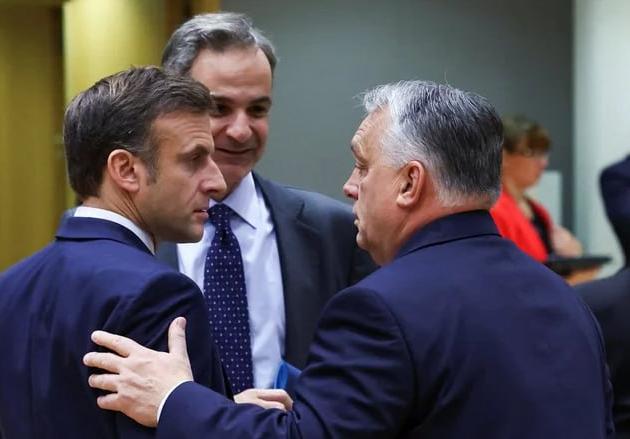Stefanyshyna: If Orban had blocked the vote on Ukraine, his veto power would have been taken away
The leaders of the 26 EU states had several options to reach consensus on the issues on the agenda of the summit

Hungarian Prime Minister Viktor Orban did not veto the start of negotiations on Ukraine's accession to the EU, because in that case he could have lost his veto. European leaders had a plan to deprive Orban of this opportunity.
This was stated by Deputy Prime Minister for European and Euro-Atlantic Integration Olga Stefanishyna, ukrayina.pl reports.
According to her, the leaders of the states had several options that should have allowed them to reach a consensus on the issues that were brought to the summit – from financial to compromises regarding the Western Balkans.
She added that if a compromise on the Ukrainian issue had not been found, it would have meant that Prime Minister Orban had a different motivation than the one he publicly states.
"I want to say that even if the situation was more critical than it was yesterday, 26 EU member states were ready to deprive Hungary of its right to vote. This is an official procedure, it has never been used, but it still exists. I think this also became an argument," Stefanishyna said during the telethon.
As reported, during the decision to start negotiations on EU membership, Orban left the room. Thus, the European Council was able to make a historic decision for Ukraine.
As it has become known, this decision was initiated by German Chancellor Olaf Scholz, who suggested that Orban "go for a coffee" during the vote.
In Brussels, this is called constructive abstention. It allows important decisions to be made without the participation of some members.
However, Orban managed to veto the 50 billion euros in EU aid to Ukraine. Nevertheless, the leaders of the 26 EU member states found a way to allocate these funds to Ukraine. The EU has announced that it will create a €50 billion Ukrainian Fund for 2024-2027. This is stated in the statement of the Ministry of Foreign Affairs. Negotiations on aid to Ukraine will continue next year.
If you have read this article to the end, we hope that means it was useful for you.
We work to ensure that our journalistic and analytical work is of high quality, and we strive to perform it as competently as possible. This also requires financial independence. Support us for only UAH 196 per month.
Become a Mind subscriber for just USD 5 per month and support the development of independent business journalism!
You can unsubscribe at any time in your LIQPAY account or by sending us an email: [email protected]



